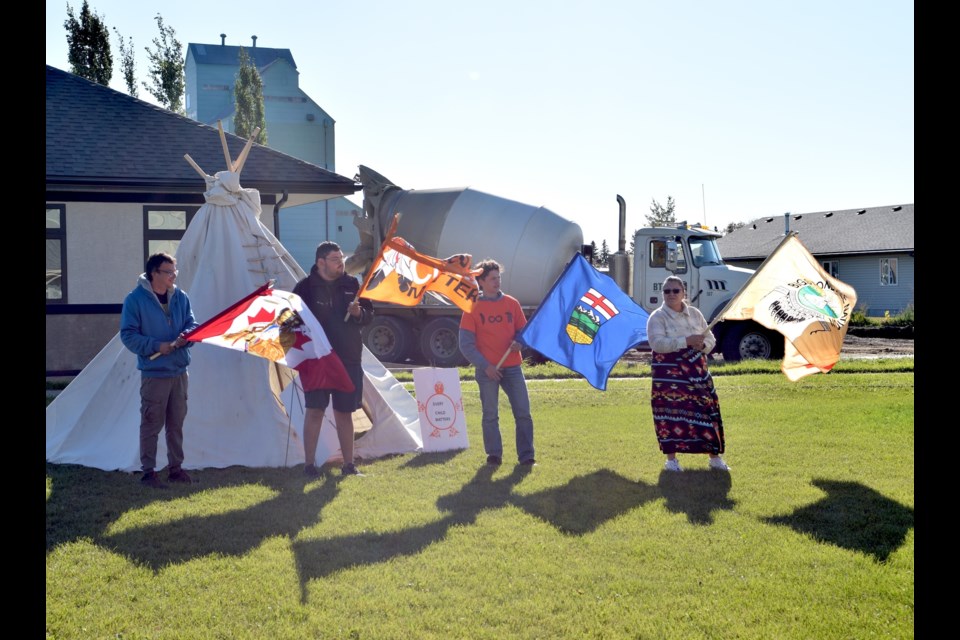BARRHEAD - When Robin Berard first became involved in National Day for Truth and Reconciliation Day events in Barrhead, she concentrated on telling the truth about the abuse the survivors of Canada's residential school system experienced.
However, as time passed, she changed her focus to "repairing the broken bridge" understanding between Indigenous peoples and those from other nations.
That is what Berard told a group of about 50 people during an hour-long National Truth and Reconciliation Day ceremony at the Barrhead Blue Heron Support Services Association grounds on Sept. 30.
In addition to hearing from Berard the crowd also heard from McKenzie Griffith, a former Barrhead resident of Cree, Saulteaux and European ancestry, before inviting people to tell their stories, and ending with a lunch of stew and Bannock,
Berard came to Barrhead about a decade ago from the Bigstone Cree Nation near Wabasca.
The day is held annually on Sept. 30 to honour the survivors, their families and communities of the residential school system.
Berard said she knows first-hand the damage that the residential school system had on the children who were, most often, forcibly taken from their homes, noting her mother was in a residential school for six years.
"How would you feel if a stranger pulled from your home and you were forced to speak a language you never knew or even heard of and at the same time being forbidden to speak your language?" she asked. "Those kids went through so much, whether it was sexual, physical, or emotional abuse. They were spiritually whipped because they were not allowed to speak about their culture, their spirituality or who they were as an individual."
Berard also spoke about the emotional damage that her mother lived with after leaving residential school.
As a result of the abuse, Berard's mother turned to self-medication, in her case, alcohol.
"Because she was an alcoholic, her [13] kids were taken away [by Children Services]," she said.
Eventually, Berard's mother got her children back, but to do so, she had to make a deal with the social workers.
But, to do so, she said, her mother had to agree to give up the one she was carrying.
"She told them, 'You give me my kids back, then you can have the one I am pregnant with'," Berard said.
The unborn child her mother was speaking of was Berard herself. The result of a rape after going on a drinking bender with a large group of men and women.
"For years, I was bitter, questioning why me? Why keep everyone else?" Berard said.
Eventually, Berard found answers to those and many other questions after the government released the adoption records of the Scoop children.
"The envelope [with my birth mother's name] came in the mail," she said, adding it took three months for her to open the envelope. "That is when I discovered the truth, and everything changed. "To hear from my mother when I was 50 that she loved me. That is when I was able to let my anger go."
However, she says she sees that the work that she and countless others have done, which has shed the spotlight on the injustices done to the Indigenous community, is paying benefits.
Berard said Children Services social workers are no longer taking Indigenous children and putting them into foster care.
"They are going into kinship and family members," she said. "For me, that is a big step."
Berard added that the pain she endured will always be part of her.
"It will always hurt, but all I want to do is share our culture's understanding and beauty," she said. "You may be from a different nation, but the creator made us all different for a reason. We all walk a different path but all have to understand each other. This is a beautiful community and it is time to take those walls down."
Barry Kerton, TownandCountryToday.com




